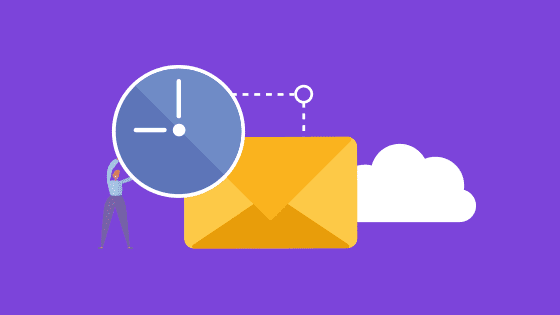Digital marketing is constantly evolving. Nonetheless, engaging with an audience through email marketing is still a very effective practice. Email Marketing can be a powerful piece of a company’s marketing strategy when utilized correctly. Mindlessly sending out email blasts that you think your leads and clients would like is not the best way to market or communicate in general.
For email marketing to be successful, companies need to fully research and become aware of their audience demographics, including the many differences within that audience. This will allow you to create segmentation and communicate in a contextualized way. By understanding an audience, a company can develop more effective marketing communication that leads will want to engage with.
If you’ve ever read a book and thought to yourself, they know exactly what I am going through, this person whom you’ve never met is experiencing the same thing I am.
That’s the feeling your audience will have when you contextualize your emails.

What is Email Marketing?
Whenever you send messages related to your company’s activities and offerings to email addresses in your database, you are simply marketing via email. In other words. Email marketing is the process of sending business-related emails to groups of customers or potential customers to inform people about promotions, new products, deals, or updates. The primary goals are to increase sales, the size of your customer base, and the company’s revenue.
Marketing through email allows companies to stay in contact with their customer base and keep individuals informed about the company as it grows. Email marketing can be finely tailored to fit certain target audiences and if done correctly, these messages will help show customer-relevant information.
What is Contextualization in Marketing?
Contextualization in marketing refers to strategies developed around a company’s marketing efforts so that targeted content can be more relevant to your target market that is receiving the information.
When it comes to email marketing, contextualizing means that email blasts are less likely to be sent to spam folders because they contain information that the recipient is interested in. For obvious reasons, it only makes sense to dedicate time and effort to market your company so that recipients will respond positively.
To properly contextualize marketing content, you’ll need to take several things into account. First is to ensure that your content is targeted at your target audience and consider the date and time you plan to send out your emails. Send emails only at times when the recipient is likely to absorb the content.

Benefits of Contextualized Email Marketing
Knowing your audience is one of the most important business development lessons to adopt in your business. When it comes to marketing emails, your business will reap limitless benefits by incorporating simple customer research into your strategy. Not only is this crucial, but doing so can bring about a wide variety of benefits that are well worth the simple time investment.
- Increased Sales and Revenue: Customers will be more willing to make a purchase and trust your company when your email content is specially targeted and personalized.
- Cost-Effective Marketing: It’s not expensive to implement contextual marketing, at least when compared with traditional marketing strategies. In fact, the bulk of the information a company needs to execute contextualized marketing comes from the CRM data it already has in its database.
- Increased Engagement: Presenting information that interests different groups of people is a great way to increase audience engagement. With increased engagement, you will not only increase awareness for your company but also foster a sense of community among your target audience.
- Improved Customer Satisfaction: When customers feel that their time is valuable and the brands that they purchase from truly know them, they are more likely to remain loyal. The best way to keep customers and help draw in new audiences is to keep the current customer base happy. Contextualized marketing helps make customers feel that their chosen brands pay attention to their wants and needs.
- Targeted Traffic: Focusing on audience behaviors and demographics, makes it easier for companies to draw in more of an audience organically. When you reach out to your audience at the right time, and with the right words, it is far more likely to convert them.
- Customer Convenience: You’d hardly experience emails being sent to spam folders or ignored when you target your audience at the best time possible at the most ideal frequency. Nobody likes to feel like they’re being hassled by companies they shop with, so it’s important to approach a customer when they’re actually in need of the product being offered.
In other words, analyzing and utilizing audience data will birth better results from your email marketing campaigns.
If you’d like to learn more about how contextualized email marketing can benefit your business or if you’d need help implementing new strategies, feel free to book a call with us. With our results-driven techniques, we’ll help you get your business to operate at its best capacity. Read More Business Automation Strategy


